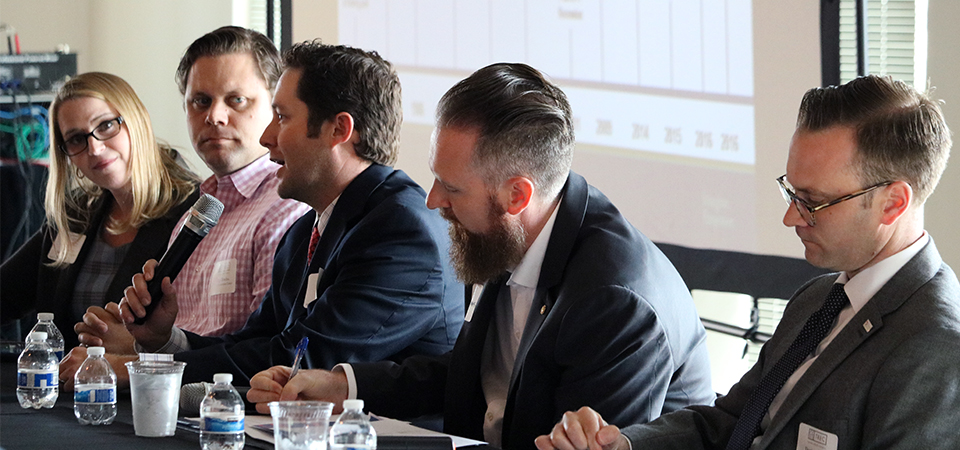You don’t expect to see the words historic and innovation in the same headline, but for West End, they coexist. Leadership Alumni recently hosted its annual luncheon at 501 Elm Place, leased by Peloton Commercial Real Estate, to discuss the neighborhood’s transformation into an innovation district and one of today’s most popular destinations in Downtown Dallas.
Like most structures in the district, 501 Elm Place is historic on the outside and innovative on the inside. The area is a notable focus for creative space of several high profile owners who investigated the neighborhood after the arrival of The Dallas Entrepreneur Center (The DEC), a co-working space and organization helping entrepreneurs in Dallas start, build and grow their company.
The DEC, located at 311 N. Market St., opened in the West End in 2013. With the entrance of quality capital to the neighborhood, the district’s goal is to collectively become Dallas’ International Innovation Center. Trey Bowles, CEO/Founder of The DEC, spoke intricately about three overriding factors that need to be in place for a fully functioning Innovation Center to be successful.
According to Mr. Bowles, one cannot be without the others as these are the pillars for an Innovation Center. The pillars include:
- Civic Innovation
- Startup Innovation
- Corporate Innovation
Moderated by Jessica Heer of the Dallas Regional Chamber, our other panelists, Dustin Bullard of Downtown Dallas, Inc., Burson Holman of Granite Properties and James Adams of Corgan, filled in how these pillars are coming together. Here are their main points:
- Several startups have already moved or will be moving into the neighborhood.
- Large corporations plan to place their corporate innovation centers in West End’s buildings.
- The city is in talks to potentially create a major transportation hub at the edge of the district, serving not just the downtown area, but the entire metroplex.
- The area needs connectivity, specifically through the Lamar St. and Ross Ave. corridors. The fluidity of these connective pathways that reach the Cedars neighborhood south of downtown to Victory to Lower Greenville must be recognized and improved.
- Support among West End’s ownership community, which includes the likes of Granite Properties, Crescent Real Estate Holdings, Lincoln Property Company, and Spear Street Capital, is occurring, and must continue, to build the notoriety of the area for innovation.
- With so much investment occurring in the area, the contributors must think about growth going forward and how to go about it in the appropriate manner to preserve the character and charm of its historic nature, yet at the same time fuel innovation and further investment.
As our panelists reminded us, entrepreneurship has always been at Dallas’ core, and essentially, it is what Dallas was founded on. Now West End is aggregating the innovation and collaborating as a district to brand it here.
